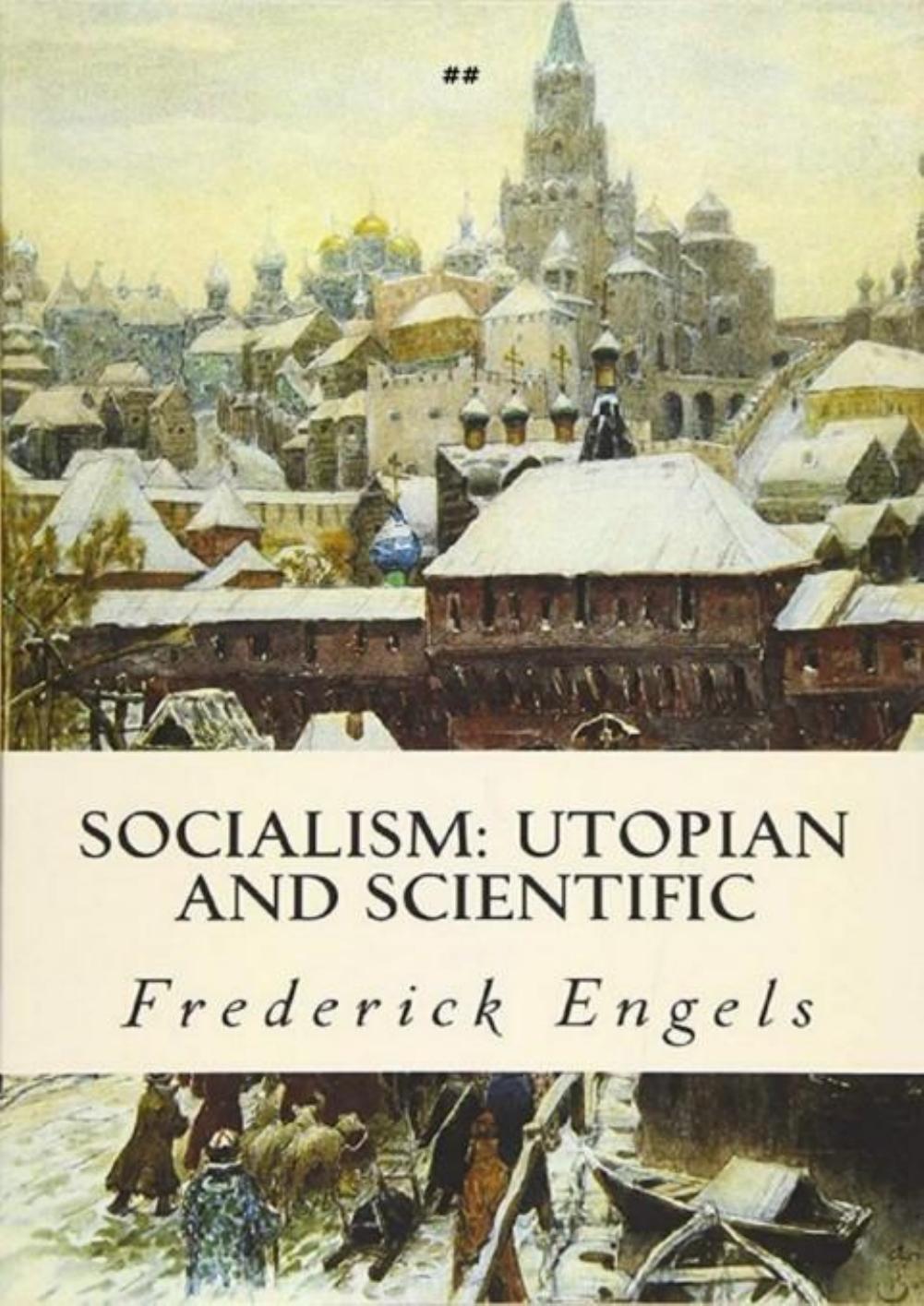Socialism: Utopian and Scientific by Friedrich Engels

Author:Friedrich Engels [Engels, Friedrich]
Language: eng
Format: epub, pdf
Published: 2012-03-24T00:00:00+00:00
* * *
III
The materialist conception of history starts from the proposition that the production of the means to support human life and, next to production, the exchange of things produced, is the basis of all social structure; that in every society that has appeared in history, the manner in which wealth is distributed and society divided into classes or orders, is dependent upon what is produced, how it is produced, and how the products are exchanged. From this point of view the final causes of all social changes and political revolutions are to be sought, not in men's brains, not in man's better insight into eternal truth and justice, but in changes in the modes of production and exchange. They are to be sought, not in the philosophy, but in the economics of each particular epoch. The growing perception that existing social institutions are unreasonable and unjust, that reason has become unreason, and right wrong, is only proof that in the modes of production and exchange changes have silently taken place, with which the social order, adapted to earlier economic conditions, is no longer in keeping. From this it also follows that the means of getting rid of the incongruities that have been brought to light, must also be present, in a more or less developed condition, within the changed modes of production themselves. These means are not to be invented by deduction from fundamental principles, but are to be discovered in the stubborn facts of the existing system of production.
What is, then, the position of modern Socialism in this connection?
The present structure of societyâthis is now pretty generally concededâis the creation of the ruling class of to-day, of the bourgeoisie. The mode of production peculiar to the bourgeoisie, known, since Marx, as the capitalist mode of production, was incompatible with the feudal system, with the privileges it conferred upon individuals, entire social ranks and local corporations, as well as with the hereditary ties of subordination which constituted the framework of its social organization. The bourgeoisie broke up the feudal system and built upon its ruins the capitalist order of society, the kingdom of free competition, of personal liberty, of the equality, before the law, of all commodity owners, of all the rest of the capitalist blessings. Thenceforward the capitalist mode of production could develop in freedom. Since steam, machinery, and the making of machines by machinery transformed the older manufacture into modern industry, the productive forces evolved under the guidance of the bourgeoisie developed with a rapidity and in a degree unheard of before. But just as the older manufacture, in its time, and handicraft, becoming more developed under its influence, had come into collision with the feudal trammels of the guilds, so now modern industry, in its more complete development, comes into collision with the bounds within which the capitalistic mode of production holds it confined. The new productive forces have already outgrown the capitalistic mode of using them. And this conflict between productive forces and modes of
Download
Socialism: Utopian and Scientific by Friedrich Engels.pdf
This site does not store any files on its server. We only index and link to content provided by other sites. Please contact the content providers to delete copyright contents if any and email us, we'll remove relevant links or contents immediately.
Kathy Andrews Collection by Kathy Andrews(11834)
The remains of the day by Kazuo Ishiguro(8999)
Spare by Prince Harry The Duke of Sussex(5197)
Paper Towns by Green John(5191)
The Body: A Guide for Occupants by Bill Bryson(5097)
Industrial Automation from Scratch: A hands-on guide to using sensors, actuators, PLCs, HMIs, and SCADA to automate industrial processes by Olushola Akande(5061)
Machine Learning at Scale with H2O by Gregory Keys | David Whiting(4313)
Be in a Treehouse by Pete Nelson(4051)
Never by Ken Follett(3957)
Harry Potter and the Goblet Of Fire by J.K. Rowling(3858)
Goodbye Paradise(3810)
The Remains of the Day by Kazuo Ishiguro(3413)
Into Thin Air by Jon Krakauer(3399)
Fairy Tale by Stephen King(3399)
The Cellar by Natasha Preston(3344)
The Genius of Japanese Carpentry by Azby Brown(3309)
120 Days of Sodom by Marquis de Sade(3275)
Reminders of Him: A Novel by Colleen Hoover(3121)
Drawing Shortcuts: Developing Quick Drawing Skills Using Today's Technology by Leggitt Jim(3083)
